A reader named Eric L. sent in a question about a line in Tales of the Abyss:
In the game Tales of the Abyss, the character Mieu is discussing fonons (particles that correspond to light, dark, fire, water, earth, and wind; basically a technobabble-y explanation for elemental magic) and mentions the that the seventh variety (which corresponds to sound and is the basis for healing, among other things) was “just discovered.” This is incorrect; the seventh fonon had been known for hundreds of years at that point, it was just discovered more recently than the other six.
This is something pretty much everybody but the hero (long story) should know, so this is kind of a glaring mistake for Mieu to make. Did Mieu make this mistake in the original Japanese as well, or was this a mis-translation?
I haven’t played the game, but I was luckily able to find some Japanese and English videos of the scene in question. Here are the lines for comparison:
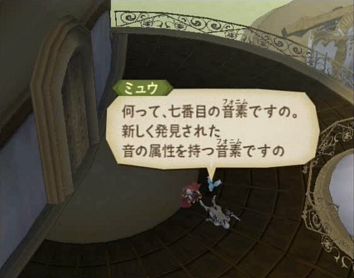 | 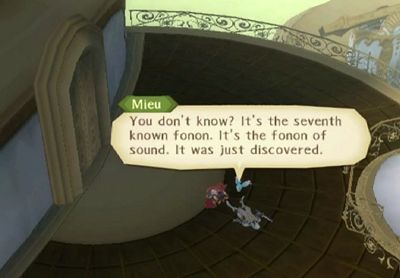 |
| Tales of the Abyss (PS2, Japanese) | Tales of the Abyss (PS2, English) |
| Japanese Version (basic translation) | English Version |
| Why, it’s the seventh fonon, of course. It possesses the attribute of sound and is the most recently discovered fonon. | You don’t know? It’s the seventh fonon. It’s the fonon of sound. It was just discovered. |
Eric says that by this point in the game, it’s been centuries since the seventh fonon was discovered, and that almost everyone should know this fact. The Japanese script says that it was 新しく発見された (atarashiku hakken sareta, "newly discovered"), but the translators or editors wrote this out as “it was just discovered”.
Normally “newly” and “just” end up meaning the same thing in situations like this, so you can usually translate 新しく (atarashiku) as either one without too much worry. But in this specific case, 新しく does suggest that the seventh fonon was simply discovered more recently than the original set of fonons, not that it was necessarily a super-recent thing. It’s a very tricky phrase and I can totally see why it wound up the way it did in English – I could see myself falling for this translation trap myself.
Still, why didn’t this ever get caught during the other parts of the localization process? The answer is that it’s common to hire multiple translators for large translation projects. This means that each translator will only have partial, up-close familiarity with the entire project. So whoever translated this particular line in Tales of the Abyss might not have known that the seventh fonon was discovered centuries ago.
The scary thing is that ”deeper” mistakes like this are subtle and very hard to catch once they leave the translators’ hands. Typos and grammar mistakes are simple for anyone to spot, but unless you’re actively comparing the source text and translated text, it’s a lot harder to recognize translation mistakes. And localization editors and testers probably wouldn’t have the expertise for something like that anyway.
Because of all this, I’m sure there are lots of similar, under-the-surface translation mistakes in games out there that most players never notice. That’s what this site is all about, though. So if you know of any sneaky translation mistakes or have suspicions about any, let me know in the comments – they don’t necessarily need to be Japanese-to-English translations, either. I’d like to learn more about translation mistakes into other languages too.


![Passport to MOTHER 2 [Learn Japanese!] Passport to MOTHER 2 [Learn Japanese!]](https://legendsoflocalization.com/wp-content/uploads/2018/05/pp-m2.jpg)
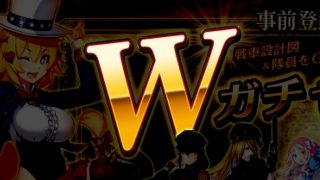
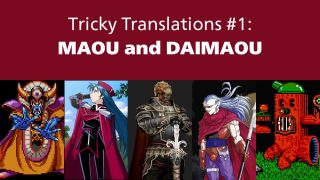
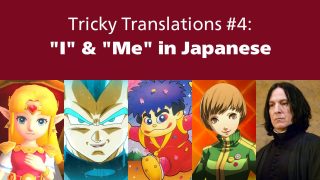
They didn’t fix this for the 3DS port. I should know, it’s the only version I’ve played.
Cool, thanks for the info!
Hah, I remembered that bugging me before! I can see how that mistake would come about, though. Thank you for always posting such interesting things!
Huh, I’d never really thought about that part, but it has been a while since I’ve played the game.
And just to echo Panda’s post, the 3DS version is indeed a direct port of the PS2 version, so they simply dumped the script and gave it a new font. Nothing changed, it just meant Japanese players could enjoy the extras we got in the PS2 U.S. release that they didn’t since the original version was rushed out the door for the series’ tenth anniversary (lots of unused content as a result).
I’m actually playing through the PS2 version right now and also thought this was somewhat odd, since The Seventh Fonon is treated as very common knowledge. Nice find!
In Phantasy Star III, an elderly councilman tells you where to go by saying, “[…]A word of ultimate power has been lost for ages. This name can empower the weapons of legend. To discover the lost name, you must first find all five weapons of ancient legend. The name of power can be learned on Sage Isle, in Draconia, the world of old Cille and Shusoran. Our dungeon holds the aqua parts for Wren. These will enable you to wrest Orakio’s Sword from its watery tomb and to visit Sage Isle.[…]”
The problem here is that Cille and Shusoran came from *Aquatica*, not Draconia. Apparently, the manual tries to cover for this mistake by saying that the councilman has “become a bit senile and confused these last few years”. However, I’m not sure if this is a mistranslation, or if the original Japanese also had the mistake.
See here: http://lparchive.org/Phantasy-Star-3/Update%2014/
I guess the other problem would be: how “lost” is this word of ultimate power if this dude knows exactly where it is and how to get it? 😉
There’s a particular line in Tales of Vesperia. I recently played it and noticed something odd about it. It was after (or during) the last arc of the game where you have to gather four elemental spirits. Upon arriving in Capua Norim (a port town) Yuri says, “This place has become quite a place, hasn’t it?” I don’t what happened there.
Gah, I remember wrong. It’s Torim, not Norim.
Is it played entirely straight? I could see that line working in a sarcastic fashion, with “place” effectively standing in for something rather less pleasant. Like Captain Qwark’s terrific line in the new Ratchet & Clank: “well aren’t you just full of… stuff you can do.”
No, he didn’t say in a sarcastic fashion. He said it in a tone that he was amazed at the situation about the town (the port went through some trouble earlier in the game).
Is that the exact line? There’s a dual language script dump (intended for people playing PS3 Vesperia but works for this) but I can’t find that line.
Vesperia is actually full of text and translation goofs. Clyde covered it in an older topic regarding Raven’s odd speech patterns in Japanese. It’s in the related reading window if you’re curious.
Huh! I can kind of see it as something an actual person would say, at least, but it is pretty odd wording.
Never played any Tales of games to be honest. I do have one on my Steam wishlist and would like to try it out someday.
I’ve never really gotten into them. I have Tales of Symphonia on the GCN and Tales of Zestiria on the PC, but only a few hours into either one; for whatever reason, they’ve just never grabbed me.
Zestiria’s really lackluster; If you want a Destiny-style game in English, Graces is much better (although the story is still terrible). Symphonia’s fantastic, but the subsystems might come off as simplistic for the series these days.